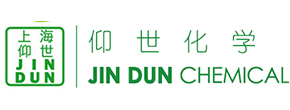ExxonMobil also entering the lithium industry?
2023/5/31
ExxonMobil is currently preparing for a future with significantly reduced dependence on oil and gas. The company is exploring a key resource beyond oil: lithium.
According to The Wall Street Journal on May 22nd, ExxonMobil has purchased the rights to develop 120,000 acres (approximately 485 square kilometers) of land in the Smackover formation in southern Arkansas, USA from Galvanic Energy. The company plans to produce lithium on this land. The reported transaction between ExxonMobil and Galvanic Energy is said to exceed $100 million. ExxonMobil may begin exploratory drilling in the region in the coming months and expand its operations if the returns prove substantial.
Galvanic Energy stated that a third-party consulting firm estimated last year that the Smackover formation in southern Arkansas may have approximately 4 million metric tons of lithium carbonate equivalent, enough to meet the battery demand of around 50 million electric vehicles.
ExxonMobil is the world's largest oil and gas producer, headquartered in Irving, Texas, USA. The company had previously made forays into the lithium industry as early as the 1970s. In 1976, ExxonMobil began producing lithium batteries, but due to limited market size at the time, the company ceased related production a few years later.
Now, ExxonMobil's return to the lithium industry signifies the company's active transformation and pursuit of new growth opportunities.
It is worth mentioning that Stanley Whittingham, the 2019 Nobel Prize laureate in Chemistry, worked at ExxonMobil Research and Engineering Company from 1972 to 1984, conducting research on lithium-ion batteries. Additionally, ExxonMobil claims to have a technological advantage in transitioning from petroleum to lithium. Executives in the lithium and oil industries state that extracting lithium from brine involves drilling, pipelines, and liquid processing, in which oil and gas companies have accumulated a wealth of expertise, making them well-suited for transitioning to lithium production.
Furthermore, ExxonMobil predicted last year that the demand for internal combustion engine fuels in light-duty vehicles could peak by 2025, and by 2050, electric vehicles, hybrid vehicles, and fuel cell-powered vehicles could account for over 50% of new car sales. The company also projected that global electric vehicle numbers could increase from 3 million in 2017 to 420 million by 2040.
The extraction and supply of lithium resources have always been a topic of great interest. Currently, global lithium resources are mainly distributed in South America, Australia, China, and other regions. Among them, Australia is the world's largest producer of lithium minerals, accounting for approximately 50% of the global market share. China, on the other hand, is the world's largest consumer of lithium minerals, with around 60% of the global market share.
With the continuous expansion of the electric vehicle market, the demand for lithium mineral resources is also increasing, making the extraction and supply of lithium resources an important area for the future.
Tesla's lithium refining plant in Texas breaks ground
Not only ExxonMobil, but Tesla is also building a lithium refining plant in Texas, USA. Recently, Musk held a groundbreaking ceremony for the lithium refining plant in Texas.
It is worth mentioning that during the ceremony, Musk repeatedly emphasized that the lithium refining technology used by Tesla is different from traditional methods, being environmentally friendly, cost-efficient, and even stating, "You can live in this
factory, and it wouldn't have any impact on you."
Musk's mention of this technology differs greatly from current mainstream practices. Regarding Tesla's own lithium refining technology, Drew Baglino, Tesla's Senior Vice President of Powertrain and Energy Engineering, briefly explained during the groundbreaking ceremony. Tesla's lithium refining technology will reduce energy consumption by 20% and reduce chemical agent costs by 60%, resulting in an overall cost reduction of 30%. Additionally, the by-products generated during the refining process are also harmless.
As for ExxonMobil's subsequent lithium extraction technology, we will have to wait and see!
JIN DUN CHEMICAL has built a special (meth) acrylic monomer manufacturing base in ZHEJIANG province. This makes sure the stable supply of HEMA, HPMA, HEA, HPA, GMA with high level quality. Our special acrylate monomers are widely used for thermosetting acrylic resins, crosslinkable emulsion polymers, acrylate anaerobic adhesive, two-component acrylate adhesive, solvent acrylate adhesive, emulsion acrylate adhesive, paper finishing agent and painting acrylic resins in adhesive.We have also developed the new and special (meth) acrylic monomers and derivatives. Such as the fluorinated acrylate monomers, It can be widely used in coating leveling agent, paints, inks, photosensitive resins, optical materials, fiber treatment, modifier for plastic or rubber field. We are aiming to be the top supplier in the field of special acrylate monomers, to share our rich experience with better quality products and professional service.

